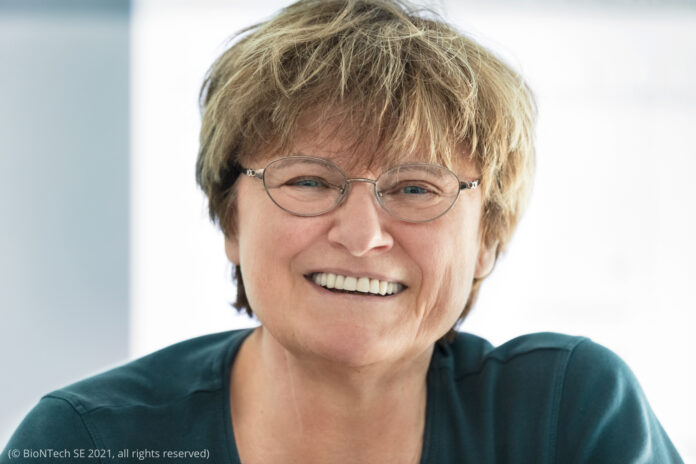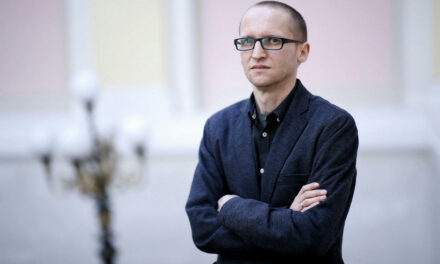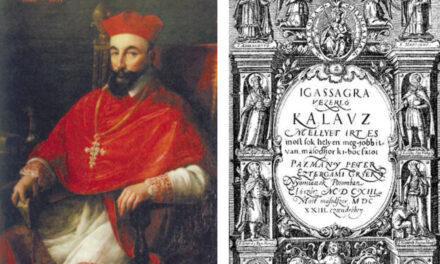We can all remember that when the name of Dr. Katalin Karikó first appeared in the Hungarian press, the left-liberal media first started by saying that she was not a very good researcher, since she was demoted from the Biological Research Center in Szeged (1985) due to staff reductions. Then they attacked him with the fact that he had fled abroad from home, so to speak. In the end, the only problem with him was that he was Hungarian.
Fortunately, the naysayers fell silent after a short time, and since the numerous awards and honors, as well as the success of the Pfizer vaccine, everyone is now waiting to see if the researcher will receive the Nobel Prize, with which he would also do his homeland a great service.
, a very long article about Katalin Karikó was published yesterday in the health section of the New York Times "Kati Kariko helped protect the world from the coronavirus." . We quote some details from it.
"His career at the University of Pennsylvania was fragile for many years. He wandered from laboratory to laboratory, relying on one senior scientist at a time. He never made more than $60,000 a year. Kariko lived for his "desk" and did not care about fame. The workbench is there, and the science is good, he said. Who cares about fame? (…)
In 1985, when Dr. Kariko, her husband and her 2-year-old daughter, Susan, moved to Philadelphia, the Hungarian government only allowed $100 to be taken out of the country. So she and her husband sewed 900 pounds (roughly $1,246 today) into Susan's teddy bear. (Later, Susan became a two-time Olympic gold medalist in rowing.) (…)
Dr. Kariko's ideas about mRNA were decidedly unorthodox.” (…) Even the most basic tasks were difficult, almost impossible. How can you make RNA molecules in a lab? How does mRNA get into the cells of the body?
In 1989, he took a job with Dr. Elliot Barnathan, then a cardiologist at the University of Pennsylvania. “Most people laughed at us,” Dr. Barnathan said. Then, one fateful day, the two scientists bent over a dot-matrix printer in a narrow room. To track the radioactive molecule, a gamma counter was connected to a printer. And it started spreading data. Their detector found proteins that cells made, suggesting that mRNA could be used to direct any cell to make any protein it wanted.
"I felt like God," Dr. Kariko recalled. (...) But the money for research ran out and Dr. Barnathan moved to another laboratory. That's when he found Dr. Langer. He and Kariko tested their mRNA to study stroke. In Buffalo, they trudged through the snow to test stroke-prone guinea pigs in a laboratory. They failed.
Dr. Langer left the university and the chair of the department also left. Dr. Kariko was left without a laboratory again, and there was no money for research. The next stop was Dr. Weisman, who told him that he wanted to make a vaccine against AIDS. I can do that, Kariko replied. However, despite this theoretical feat, his research on mRNA stalled. The mRNA did not work in live mice. No one knew why, Dr. Weissman said afterward. All we knew was that the mice were sick. Their fur was wrinkled, they moved hunched over, they stopped eating and running. (…)
It turns out that the immune system recognizes invading microbes by detecting their mRNA and reacting with inflammation. But another puzzle came up. Every cell in every person's body makes mRNA and the immune system "turns a blind eye." I wonder why this is different from the mRNA I made, Kariko wondered.
An experimental control study finally answered the question. Dr. Kariko and Dr. Weissman noticed that another form of control molecules, RNA, is created in the human body - called transfer RNA or tRNA. A molecule called pseudouridine in the tRNA allowed it to evade the immune response. After that, it turned out that naturally occurring human mRNA also contains that molecule. (…) This meant that mRNA could be used to change the functions of cells without triggering an immune system attack. They both knew there was a solution .
But leading scientific journals rejected their work.
When their research was finally published in the journal Immunity, it received little attention. " We talked to pharmaceutical companies and venture capital investors. Nobody cared, Dr. Weissman said. We screamed a lot, but no one listened to us."
In the end, however, two biotechnology companies saw fantasy in it: Moderna from the United States and BioNTech from Germany. Pfizer cooperated with the company BioNTech, so they helped finance Dr. Weissman's laboratory and Katalin Karikó, born in Szolnok.
We already know the rest.













